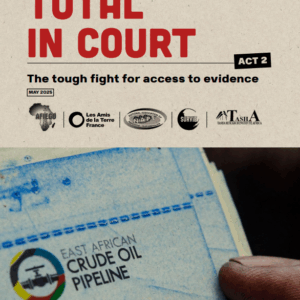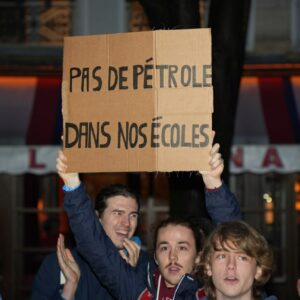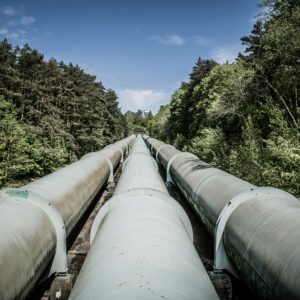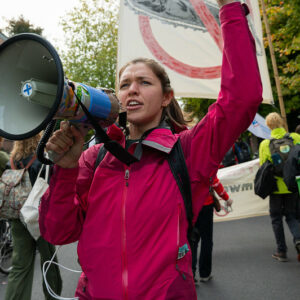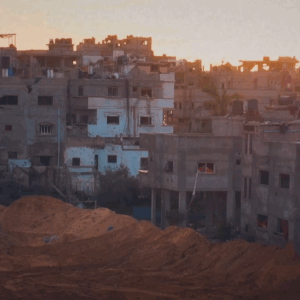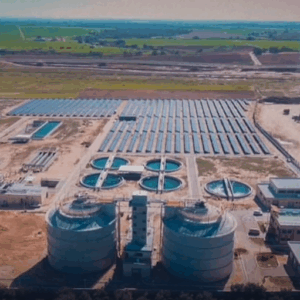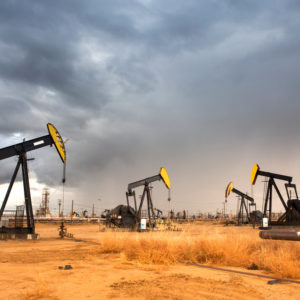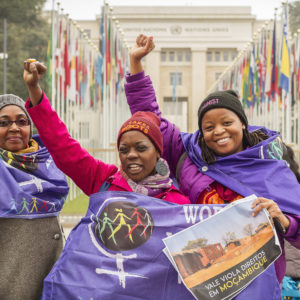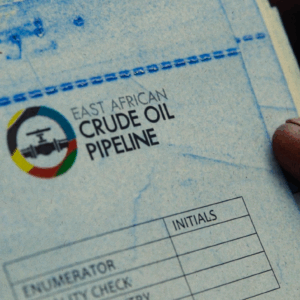
Court case against Total’s EACOP project in France: A crucial hearing for access to evidence
As part of the second lawsuit against Total’s Tilenga and EACOP projects filed in June 2023 under the French Duty of Vigilance Law, an initial hearing will finally take place on Thursday, May 15, 2025 in the Paris civil court. It could prove decisive in gaining access to evidence that Total has so far refused to disclose.
In June 2023, 26 affected individuals, human rigths defender Maxwell Atuhura, along with Friends of the Earth France, AFIEGO, NAPE / Friends of the Earth Uganda, Survie, and TASHA, filed a lawsuit against Total. This legal action, brought before the Paris civil court, seeks to hold the company liable and to obtain compensation for human rights violations caused by its Tilenga and EACOP oil projects in Uganda.
As construction progresses on the ground and human rights violations persist, civil society organizations and affected people are now asking the judge to compel Total or its subsidiaries to disclose documents that are essential to the examination of the case.
Bringing an action for damages is a real uphill battle, as the burden of proof lies with the claimants, who must demonstrate to the judge that violations occurred and that the harm they suffered resulted from the company’s failure to comply with its duty of vigilance, that is, a failure by the company in establishing and/or effectively implementing its vigilance plan.
According to Juliette Renaud, coordinator at Friends of the Earth France: “This hearing highlights a major obstacle for affected people and organizations: the burden of proof. Despite the risks of gathering evidence in an authoritarian country like Uganda, our lawsuit already includes numerous elements demonstrating Total’s violations and failure to meet its duty of vigilance. However, key documents and information remain in the company’s possession. Total continues to hide behind its subsidiaries to avoid disclosure, but we hope the judge will compel them to hand over these documents to ensure an effective access to justice.”
Among the 26 affected individuals is Mr. Ismail Bwowe, a person living with a disability. He shares, “TotalEnergies must explain how they evaluated our property. My coffee plants were evaluated at eight (8) USD each and yet in other districts, it was at 21 USD for every coffee plant. Is my coffee different? Total will make millions from this project, but they offered me peanuts. Also, I was promised food support but the support period kept changing from two years to only six (6) months. I cannot even take care of my children. As a person living with a disability, I am suffering and so are many others.”
The requested documents include internal audits, minutes from “Human Rights Steering Committee” meetings at the parent company or subsidiary level, reports used to calculate compensation amounts for evicted individuals, a study on the floods caused by construction works, etc. Unlike some external audits published on Total’s website, these are non-public documents that only Total possesses or can access. They are essential to evaluate whether the company respects – or fails to respect, as documented violations suggest – its obligations set out in the French Duty of Vigilance Law.
To Dickens Kamugisha, Chief Executive Officer at Africa Institute for Energy Governance:
“Total’s refusal to disclose useful documents is a legal obstruction and a moral failure which perpetuates the suffering of the Tilenga and EACOP affected persons. Communities in Uganda have been forcibly displaced, denied fair, adequate and prior compensation and left to face environmental infractions without recourse. These are not abstract violations, human lives are being affected everyday. For years, we have demanded for transparency and accountability from Total so if it truly believes in responsible business practices and respect for human rights, it must stop hiding behind legal technicalities and subsidiaries. This hearing is a vital step for us and it is our hope that the court will compel Total to make disclosure of the documents in question.”
Additionally, the claimants are requesting that Total disclose individual forms related to the eviction of affected individuals involved in the lawsuit, particularly concerning compensation and food aid they received. As reported in various investigations, many affected people never received copies of these forms, which are directly relevant to their personal cases. These documents are expected to confirm that both the compensation and food support were largely inadequate.
A few days before the hearing, Total’s subsidiaries EACOP and TotalEnergies E&P Uganda sent part of the forms concerning around 10 affected people. According to the claimants, however, it was Total’s responsibility as parent company to provide full access to these documents from the start. Moreover, to date, many are still missing.
According to Pauline Tétillon, Survie’s co-Président: “Total’s arguments for withholding these documents are questionable. It is hard to believe that Total does not have access to studies and audits commissioned by its subsidiaries, especially when it mentions them in its own defense. As for those it does not consider relevant to the proceedings, it is not for the company to judge. This refusal of transparency only slows down the proceedings further, and fuels doubts about what Total has to hide.”
Following this hearing, the judge will rule on whether Total must disclose all or part of these documents to the claimants. Then, the exchange of written arguments on the merits of the case will resume, with or without the new documents, before a new hearing is scheduled, likely in 2026.
To learn more about the stakes of this hearing and Total’s arguments, download our press kit here.
